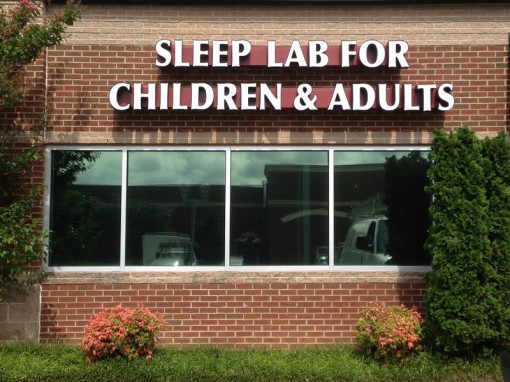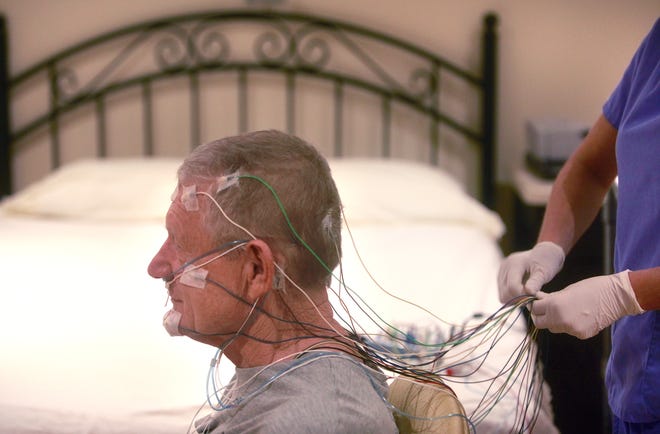Sleep is fundamental to almost anything mind related – from anxiety to depression, energy, motivation, and even memory.
"We want you to sleep better."
"Better Sleep, Better Health
What are Sleep Disorders, Sleep Apnea, and CPAP Treatment?
Sleep apnea
is a potentially serious sleep disorder in which breathing repeatedly stops and starts. You might have sleep apnea if you snore loudly and feel tired even after a full night's sleep.
Sleep Disorders
Sleeping well is vital to your health, but many Americans don't get enough. Learn about sleep disorders, treatments, and good sleep habits.
CPAP Machine
CPAP machines treat sleep apnea by delivering pressurized air through your airway via tubing and a mask. This device helps you breathe continuously while you sleep.
Attention: Do you struggle with snoring, fatigue, or restless sleep? If so, you may be suffering from sleep apnea.
Interest: Luckily, there's a solution for your sleep troubles! Our team of experts specializes in diagnosing and treating sleep apnea. With personalized care and attention to your specific needs, we'll work with you to create a customized plan that will improve your overall health and well-being.
Desire: Imagine waking up feeling refreshed and ready to take on the day without feeling dizzy or sleepy. Improved sleep quality can also reduce the risk of serious health conditions like heart disease and stroke. With our proven methods and cutting-edge technology, we can help make this a reality for you.
Action: Don't suffer through another night of restless sleep. Take the first step towards better health by scheduling an appointment today.
Over 100 types of Sleep Disorders range from difficulty sleeping at night to problems with excessive daytime Sleepiness. Sleep restores the brain and the entire body, and sleep disorders have important connections with all areas of medicine. "
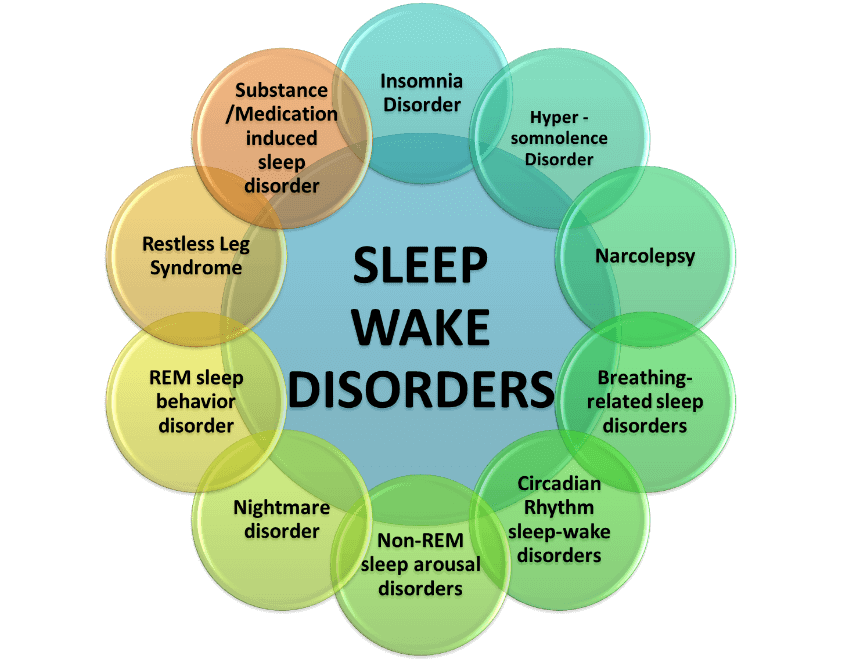
Sleep disorders can be a serious medical condition where a person experiences difficulty sleeping or has trouble staying asleep throughout the night. Such disorders can cause problems with physical and emotional health problems and impact one's overall quality of life. While some sleep ailments are treatable with lifestyle modifications, like avoiding caffeine and limiting screen time at night, others may require more extensive medical intervention. Symptoms of a sleep disorder may include fatigue, moodiness, difficulty focusing, low energy levels, and distress during the day due to lack of adequate rest. To get an accurate diagnosis, you must talk to a healthcare provider if you suspect you have a sleep disorder.
What are Sleep Disorders?
Sleep disorders are a wide range of conditions that can disrupt your normal sleep patterns. They can cause you difficulty falling asleep, staying asleep, or both. More than 100 types of sleep disorders range from mild to severe. Insomnia is the most common type of sleep disorder, and it involves difficulty falling or staying asleep for an adequate amount of time. Other major types include narcolepsy, which causes excessive daytime Sleepiness; restless leg syndrome, which causes an uncomfortable sensation in the legs that make it difficult to fall asleep; and sleep apnea, a breathing disorder in which you stop breathing for 10 seconds or more during sleep.
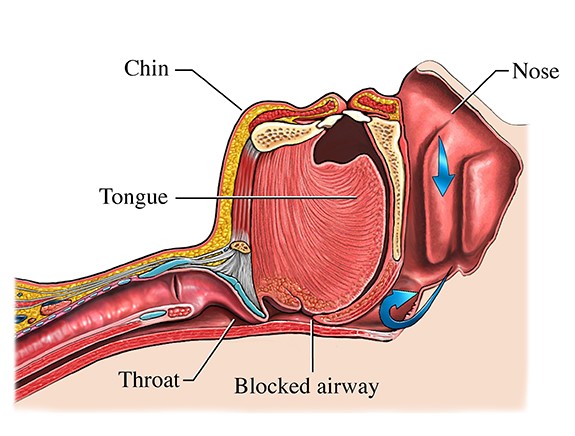
Sleep disorders can seriously affect your physical and mental health if left untreated. Poor quality of sleep can lead to fatigue during the day, difficulty concentrating, irritability, depression, and other issues. Therefore, it is important to seek medical help if you think you may be suffering from a sleep disorder so that proper diagnosis and treatment can be provided. Treatment options vary depending on the type of disorder but may include lifestyle changes such as avoiding caffeine before bedtime or medications such as sleeping pills or antidepressants.
Obstructive sleep apnea is a common sleep disorder that affects millions of people. It is characterized by pauses in breathing during sleep, which can cause snoring, gasping for air, and other symptoms. If left untreated, this disorder can lead to serious health problems such as high blood pressure, heart disease, stroke, and even death. Treatment options include lifestyle changes such as weight loss and avoiding alcohol before bedtime, as well as the use of a continuous positive airway pressure (CPAP) machine.
Daytime Sleepiness is another common symptom of sleep disorders. Various factors, including insomnia, narcolepsy, and sleep apnea, can cause this. It can lead to difficulty concentrating, irritability, and an increased risk of accidents or injuries. Treatment for daytime Sleepiness may include lifestyle changes such as avoiding caffeine, limiting screen time before bedtime, and medications such as stimulants.
What causes sleep disorders?
Various factors, including medical conditions, lifestyle habits, and environmental factors, can cause sleep disorders. Medical conditions such as depression, anxiety, and chronic pain can interfere with sleep. Lifestyle habits such as drinking alcohol or caffeine before bedtime or having an irregular sleep schedule can also contribute to sleep disturbances. Environmental factors such as noise, light, and temperature can also disrupt sleep. Sometimes, sleep disorders can be caused by a combination of these factors. Therefore, it is important to talk to your doctor if you have a sleep disorder to identify and treat the underlying cause.
What are the symptoms of sleep disorders?
The symptoms of sleep disorders vary depending on the type of disorder. Still, some common signs include difficulty falling or staying asleep, waking up frequently during the night, feeling tired during the day, and having difficulty concentrating. Other symptoms may include irritability, depression, anxiety, and changes in appetite or weight. If you think you may have a sleep disorder, it is important to talk to your doctor to make an accurate diagnosis and appropriate treatment.
Symptoms may include difficulty falling or staying asleep, waking up frequently during the night, feeling tired during the day, having difficulty concentrating, irritability, depression, and more.
How are sleep orders diagnosed?
Sleep disorders are typically diagnosed through medical history, physical exams, and sleep studies. During the medical history portion of the evaluation, your doctor will ask questions about your sleep habits and any symptoms you may be experiencing. A physical examination may also rule out any underlying conditions causing sleep disturbances. Sleep studies involve monitoring your brain waves, heart rate, breathing patterns, and other body functions while you sleep. This information can help your doctor determine your type of sleep disorder and the best course of treatment.
How to Manage Sleep Apnea: 10 Tips From Doctors
1. Maintain a healthy weight. Excess weight can put extra pressure on your airway, making it more likely for it to collapse during sleep
2. Recognizing the Symptoms of Sleep Disorders & Narcolepsy
3. 8 Natural Ways To Overcome Insomnia So You Can Get A Good Night's Sleep
4. How To Stop Snoring And Get Better Sleep
5. Experiencing Daytime Fatigue? Tips For Dealing With It & Gaining Energy
6. Reducing Stress Through Intervention & Relaxation Therapy To Combat Sleep Disorders
7. The Benefits & Downfalls of Sleeping Positions and How They Affect Your Sleeping Pattern
8. The Benefits Of Working Out To Improve Your Sleep Quality
9. The Relationship Between Diet and Lack of Quality Sleep
10. Understanding the Side Effects and Risks Of Medications Used To Treat Sleep Apnea, Narcolepsy, and Insomnia
What are the treatments for sleep disorders?
Treatment of sleep disorders depends on the type of disorder and its severity. Treatment options may include lifestyle changes, such as avoiding caffeine or alcohol before bedtime, exercising regularly, and maintaining a regular sleep schedule; medications; cognitive behavioral therapy; and, in some cases, surgery. Talking to your doctor about the best treatment plan for you is important.
In addition to lifestyle changes and medications, other treatments are available for sleep disorders. For example, cognitive behavior therapy (CBT) is a type of psychotherapy that can help people with insomnia learn how to manage better their thoughts and behaviors related to sleep. CBT can also treat other sleep disorders like narcolepsy or sleep apnea. Other treatments may include devices such as continuous positive airway pressure (CPAP) machines, which help keep the airways open during sleep. Surgery may also be an option for some people with sleep apnea.
What To Do When You Can't Sleep
1. Avoid caffeine, alcohol, and nicotine in the evening.
2. Establish a regular bedtime routine and stick to it.
3. Exercise regularly but avoid exercising too close to bedtime.
4. Avoid looking at screens (TV, computer, phone) for at least an hour before bedtime.
5. Make sure your bedroom is dark, quiet, and comfortable.
Cognitive Behavioral Therapy for Insomnia
Cognitive Behavioral Therapy (CBT) is a type of psychotherapy that can treat insomnia. CBT helps people learn how to manage their sleep-related thoughts and behaviors better. For example, it can help identify and change negative beliefs or attitudes about sleep and teach relaxation techniques and other strategies for improving sleep quality. In addition, CBT teaches people how to recognize and avoid behaviors that interfere with sleep, such as watching TV or using a computer in bed.
How to Use a CPAP Machine for Better Sleep
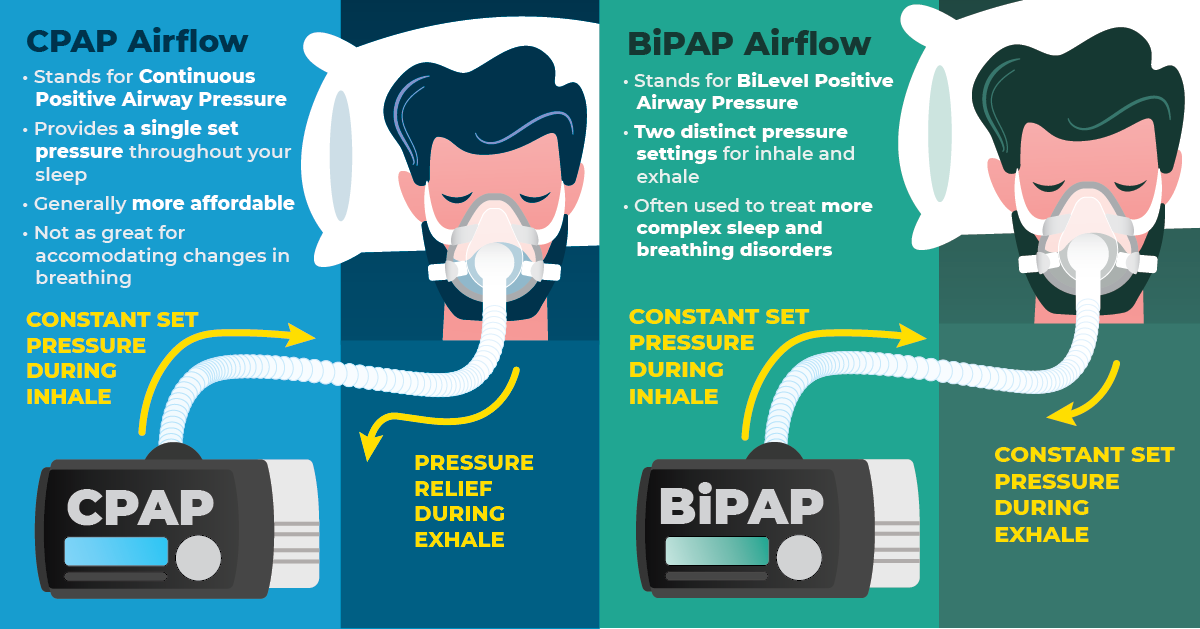
A CPAP (Continuous Positive Airway Pressure) machine is a device used to treat sleep apnea. It works by providing a steady stream of air pressure through a mask that is worn while sleeping. The air pressure helps open the airways, allowing for better airflow and sleep quality. To use a CPAP machine, you must be fitted with the correct size mask and set to the right pressure. It is important to follow your doctor's instructions for using the CPAP machine and to have regular check-ups with your doctor to ensure that it is working properly.
How much sleep is necessary?
How much sleep is necessary for optimal health and well-being depends on the individual. Generally, adults need between 7-9 hours of sleep per night to feel rested and alert during the day. Children and teenagers may need more sleep than adults, while older adults may need less. Therefore, listening to your body and getting enough sleep each night is important to stay healthy and function at your best.
What happens when a person doesn't get enough sleep?
When people do not get enough sleep, they may experience various physical and mental health issues. These can include difficulty concentrating, irritability, fatigue, weakened immune system, increased risk of accidents or injury, and an increased risk for chronic diseases such as diabetes and heart disease. In addition to these physical and mental health risks, lack of sleep can lead to decreased productivity at work or school.
Who is more likely to have a sleep disorder?
Sleep disorders can affect anyone, but certain groups are more likely to experience them. For example, people with depression, anxiety, or chronic pain are likelier to have sleep disorders. Shift workers and people who work long hours may also be at an increased risk for sleep disorders due to irregular sleep schedules. Additionally, older adults and women are more likely to experience insomnia than other age groups or genders.
How common are sleep disorders?
Sleep disorders are very common, affecting up to 70 million Americans. Insomnia is the most common sleep disorder, with an estimated 30-35% of adults experiencing it at some point. Other common sleep disorders include obstructive sleep apnea, restless leg syndrome, and narcolepsy. Therefore, it is important to seek medical help if you think you may be suffering from a sleep disorder, as it can seriously affect your health and well-being.
How many types of sleep disorders are there?
Over 80 sleep disorders include insomnia, sleep apnea, narcolepsy, restless leg syndrome, and circadian rhythm sleep disorders. Each type of disorder has its own set of symptoms and causes. To receive the proper diagnosis and treatment, speaking with your doctor if you suffer from a sleep disorder is important.
Feeling drowsy during the day is a common symptom of sleep-related disorders such as Primary insomnia, sleep apnea, and narcolepsy. Other triggers may include a lack of quality sleep, medical issues, or medications. In addition, Sleepiness during the day can cause reduced performance in work or studies and heightened chances of injuries. Therefore, if you are experiencing excessive daytime Sleepiness, you must speak with your doctor to determine the cause and receive the appropriate treatment.
Chronic insomnia is a common sleep disorder that can seriously affect your health and well-being. It is characterized by difficulty falling or staying asleep, resulting in inadequate sleep.
Restless legs syndrome (RLS) is a neurological disorder that causes an irresistible urge to move the legs. It can cause difficulty sleeping, daytime fatigue, and other symptoms such as tingling or burning sensations in the legs. Treatment for RLS may include lifestyle changes, medications, or physical therapy.
Central sleep apnea is a sleep disorder in which breathing stops and starts during sleep due to the brain not sending signals to the muscles that control breathing. It can cause daytime fatigue, difficulty concentrating, and an increased risk of heart disease. Treatment for central sleep apnea may include lifestyle changes, medications, or surgery.
REM sleep behavior disorder (RBD) is when people act out their dreams during REM sleep. It can cause disruptive behavior, such as talking, shouting, or flailing arms and legs. Treatment for RBD may include medications or lifestyle changes.
Sleep or night terrors are sleep disorders in which people experience sudden episodes of intense fear or terror during sleep.
Circadian rhythm disorders are a group of sleep disorders in which the body's internal clock is out of sync with the environment.
If you have a serious underlying health problem, it would be a good idea to consult your healthcare provider before using relaxation techniques.
Sleep paralysis causes you to be unable to move your body when you are falling asleep or when you wake up.
The limited research on it and the increasing life expectancy call for a deeper understanding of the relationship between sleep disorders and neurodegenerative disease.
Effective treatment begins with careful diagnosis using sleep diaries and perhaps sleep studies. The latter may consist of sleep fragmentation, reduced sleep duration, insomnia, increased daytime napping, decreased quantity of some sleep stages, and a growing resemblance between some sleep stages. For example, sleep paralysis causes you to be unable to move your body when falling asleep or waking up.
Fatigue and sleep disturbances such as irregular and excessive Sleepiness are linked to symptoms of depression. Various forms of relaxation are sometimes combined with components of cognitive-behavioral therapy (such as sleep restriction and stimulus control), with good results.
According to one meta-analysis of sleep disorders in children, confusional arousal and sleepwalking are children's two most common sleep disorders.
Patients with sleep disorders (or sleep-wake disorders) involve problems with the quality, timing, and amount of sleep, which result in daytime distress and impairment in functioning.
Chronic sleep disorders in childhood, which affect some 70% of children with developmental or psychological conditions, are under-reported and under-treated.
Although sleep architecture seems to change with age naturally, its development appears aggravated in AD patients.
Studies of L-tryptophan supplements as an insomnia treatment have had inconsistent results, and the effects of 5-HTP supplements on insomnia have not been established. L-tryptophan supplements may be linked to eosinophilia-myalgia syndrome (EMS), a complex, potentially fatal disorder with multiple symptoms, including severe muscle pain.
During sleep, the burden is reduced due to less metabolic activity and oxidative stress. Hippocampus cell death occurs, contributing to diminished memory performance and cognitive decline found in AD. It also notes a higher prevalence of insomnia in women over 50 than their male counterparts.
A 2019 study investigated the three sleep disturbances mentioned above in schizophrenia-spectrum and bipolar disorders in 617 SCZ individuals, 440 BP individuals, and 173 healthy controls.
Management of sleep disturbances that are secondary to mental, medical, or substance abuse disorders should focus on the underlying conditions.
Sleep disorder symptoms in psychiatric illnesses Schizophrenia in individuals with psychiatric diseases sleep disorders may include a variety of clinical signs, including but not limited to: excessive daytime sleepiness, difficulty falling asleep, difficulty staying asleep, nightmares, sleep talking, sleepwalking, and poor sleep quality.
Depressed mood and sleep efficiency strongly co-vary, and while sleep regulation problems may precede depressive episodes, such depressive episodes may also precipitate sleep deprivation.
Delayed sleep phase disorder, inability to awaken and fall asleep at socially acceptable times but no problem with sleep maintenance, a condition of circadian rhythms.
Journal of clinical sleep medicine says Sleep disorders are a common problem among people of all ages and can seriously affect physical and mental illness.
Research suggests music therapy treats sleep disorders and improves sleep quality in acute and chronic sleep disorders. For example, does your bed partner say you make gasping or snorting sounds at night? Your healthcare provider will use your medical history, sleep history, and physical exam to diagnose.
Sleep-wake disorders often occur along with medical conditions or other mental health conditions, physical health such as depression, anxiety, or cognitive disorders.
REM is the deepest stage of sleep, and it is named for the host of neurological and physiological responses an individual can display during this sleep cycle.
Doctors have known for years that sleep apnea can cause high blood pressure. Still, neurological sleep problems like restless legs syndrome, narcolepsy and teeth-grinding may also pose similar cardiovascular risks.
To get an official diagnosis, patients must know sleekit's medical advice from a sleep physician if they recognize that they or someone they love is exhibiting any symptoms of Sleep disorders.
Symptoms such as excessive daytime Sleepiness, which, in the absence of intentional sleep deprivation, "is almost inevitably caused by an identifiable and treatable sleep disorder," such as sleep apnea, narcolepsy, idiopathic hypersomnia, Kleine–Levin syndrome, menstrual-related hypersomnia, idiopathic recurrent stupor, or circadian rhythm disturbances. Over time, a decrease in time spent sleeping and a reduction in the quantity of Alzheimer's disease, in addition to cognitive decline and memory impairment, there are also significant sleep disturbances with modified sleep architecture. However, the exact mechanisms and the causal relationship between sleep disturbances and AD remains unclear.
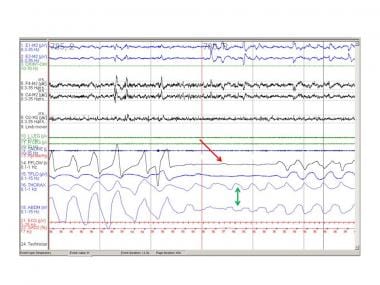
Pros:
- Treatment can improve quality of life
- Can reduce the risk of other health issues like heart disease and stroke
Cons:
- Sleep apnea can cause sleep deprivation that can lead to anxiety and depression
- Restful sleep can be difficult to come by due to environmental factors such as noise and light pollution
Restful, Energized, Healthy
We believe in promoting a healthier lifestyle by improving sleep quality and tackling sleep-related issues.
"Sleep better for a better life."
Question & Answers
What are the ten sleep disorders?
There are many different types of sleep disorders, and here are 10 of them:
1. Insomnia: difficulty falling or staying asleep
2. Sleep apnea: interruptions in breathing during sleep, which can lead to snoring and daytime fatigue
3. Restless legs syndrome (RLS): an uncomfortable sensation in the legs that leads to a strong urge to move them, often disrupting sleep 4. Narcolepsy: excessive daytime Sleepiness and sudden "sleep attacks."
5. Parasomnias: abnormal behaviors during sleep, such as sleepwalking, night terrors, and REM behavior disorder
6. Circadian rhythm disorders: disruptions in the natural sleep-wake cycle, such as jet lag or shift work disorder
7. Sleep-related movement disorders: involuntary movements during sleep, such as periodic limb movement disorder or bruxism (teeth grinding)
8. Hypersomnia: excessive Sleepiness during the day, despite getting adequate sleep at night
9. Sleep-related eating disorder: eating while asleep or experiencing strong cravings for food during the night
10. Exploding head syndrome: a loud noise or sensation that wakes a person up suddenly, often feeling like an explosion
What is the most serious sleep disorder?
Sleep apnea is the most serious sleep disorder, leading to several health problems if left untreated. Sleep apnea causes interruptions in breathing during sleep, which can result in loud snoring and daytime fatigue. Over time, untreated sleep apnea can increase the risk of high blood pressure, heart disease, stroke, and other health issues. Therefore, it is important for individuals with symptoms.
What causes sleep problems
Sleep problems can be caused by a variety of factors, including:
1. Medical conditions: Certain conditions, such as sleep apnea, restless legs syndrome, and narcolepsy, can interfere with sleep.
2. Mental health disorders: Anxiety, depression, and other mental health disorders can disrupt sleep patterns.
3. Medications: Some medications can interfere with sleep, including antidepressants and medications
How do you fix sleep problems?
Fixing sleep problems depends on the specific disorder and underlying cause. Some tips for improving sleep include:
1. Establish a consistent bedtime routine and stick to it.
2. Create a comfortable sleeping environment, including a comfortable mattress and pillows, and keep the room cool, dark, and quiet.
3. Avoid caffeine, nicotine, and alcohol before bedtime.
4. Exercise regularly but avoid vigorous exercise close
Is sleep disorder a mental illness
Not all sleep disorders are considered mental illnesses, but some can be linked to mental health conditions such as anxiety and depression. Additionally, some sleep disorders can cause or worsen symptoms of mental illness. Therefore, it is important to consult a healthcare professional to determine the cause and appropriate treatment for any sleep disorder.
How many hours of sleep by age?
The recommended amount of sleep varies by age. Here is a general guideline for the number of hours of sleep needed per night:
1. Newborns (0-3 months): 14-17 hours
2. Infants (4-11 months): 12-15 hours
3. Toddlers (1-2 years): 11-14 hours
4. Preschool ers (3-5 years): 10-13 hours
5. School-age children (6-13 years): 9-11 hours
6. Teenagers (14-17 years): 8-10 hours
7. Adults (18 and older): 7-9 hours
It is important to note that these are general guidelines, and individual sleep needs may vary. Paying attention to your body and establishing a consistent sleep routine that allows you to feel rested and alert during the day is important.
Why do I wake up every 2 hours?
Waking up every 2 hours can be a symptom of several sleep disorders, including sleep apnea, restless legs syndrome, and insomnia. It can also be caused by other factors such as stress, anxiety, or consuming caffeine or alcohol before bedtime. It is important to consult with a healthcare professional if you are experiencing frequent awakenings during the night to determine the underlying cause and appropriate treatment plan.
What is the number 1 sleep disorder?
The number 1 sleep disorder is insomnia, characterized by difficulty falling or staying asleep. In addition, stress, anxiety, medical conditions, and lifestyle habits can cause insomnia. Therefore, it is important to consult a healthcare professional if you are experiencing persistent insomnia to determine the underlying cause and appropriate treatment plan.
What are the three signs of a sleeping disorder?
1. Difficulty falling asleep or staying asleep: This can include trouble falling asleep at night, waking up frequently during the night, or waking up too early in the morning and being unable to fall back asleep.
2. Daytime fatigue, Sleepiness, or lack of energy: People with sleep disorders may feel tired or sleepy during the day, even after getting what seems like a full night's sleep.
Sleep disorders can have a significant impact on overall health and well-being. In addition to causing daytime fatigue and Sleepiness, they can also increase the risk of accidents, affect mood and cognitive function, and contribute to various medical conditions.
3. One common sleep disorder is sleep apnea, which occurs when breathing is interrupted during sleep. This can lead to loud snoring, gasping or choking during sleep.
How many hours of sleep is healthy
The recommended amount of sleep for adults (18 and older) is 7-9 hours per night. However, individual sleep needs can vary, and it is important to establish a consistent sleep routine that allows you to feel rested and alert during the day. In addition, children and teenagers require more sleep than adults, with recommended amounts ranging from 9-17 hours, depending on age.
Can sleep disorders be cured?
Many sleep disorders can be effectively treated and managed with the appropriate interventions, such as changes in lifestyle habits, medication, or therapy. However, some sleep disorders may not be cured and require ongoing management to alleviate symptoms and improve the overall quality of life. Therefore, it is important to consult with a healthcare professional for the proper diagnosis and treatment of any sleep disorder.
Are sleep disorders harmful?
Sleep disorders can be harmful if left untreated. They can lead to daytime fatigue, decreased productivity, mood changes, and increased risk of accidents or injuries. In addition, some sleep disorders can also increase the risk of other health conditions such as heart disease, stroke, and diabetes. Therefore, it is important to seek medical attention if you suspect you may have a sleep disorder to prevent potential harm to your overall health and well-being.
Sleep disorders in adults.
Sleep disorders in adults can take many forms, including insomnia, sleep apnea, restless legs syndrome, narcolepsy, and parasomnias such as sleepwalking or night terrors. These disorders can significantly impact daily functioning and overall health if left untreated. Common symptoms of adult sleep disorders include difficulty falling or staying asleep, excessive daytime Sleepiness or fatigue, loud snoring or gasping for air, and restless movements during sleep. Therefore, it is important for adults experiencing these symptoms to consult a healthcare professional for proper diagnosis and treatment. In addition, lifestyle changes, medication, therapy, or a combination of these interventions may be recommended to manage symptoms and improve quality of life.
Sleep disorders treatment
The treatment for sleep disorders varies depending on the specific condition and its underlying cause. Lifestyle changes such as improving sleep hygiene, avoiding caffeine or alcohol before bedtime, and establishing a consistent sleep routine may be helpful for some individuals. Other interventions may include medication, therapy, or devices such as a continuous positive airway pressure (CPAP) machine for sleep apnea. Working with a healthcare professional to determine the most appropriate treatment plan for your specific sleep disorder is important. In some cases, a combination of interventions may be necessary to manage symptoms and improve the overall quality of life effectively. It is important to prioritize good sleep habits and seek medical attention if you suspect you may have a sleep disorder.
Rare sleep disorders
Several rare sleep disorders can significantly impact daily functioning and quality of life. Some examples include:
1. Kleine-Levin Syndrome: A disorder characterized by recurrent episodes of excessive Sleepiness and cognitive and behavioral changes.
2. Fatal Familial Insomnia: A rare genetic disorder that leads to progressively worsening insomnia, eventually resulting in death.
3. Rem Behavior Disorder: A disorder characterized by acting out vivid dream activities during REM sleep.
4. Cataplexy: A sudden loss of muscle tone triggered by strong emotions such as laughter or surprise.
5. Hypersomnia: An excessive daytime sleepiness, even after a full night's rest.
It is important to seek medical attention if you suspect you have any of them.
Sleep disorders symptoms
The symptoms of sleep disorders vary depending on the specific condition, but common symptoms may include the following:
1. Difficulty falling asleep or staying asleep
2. Excessive daytime sleepiness or fatigue
3. Loud snoring or gasping for air during sleep
4. Restless movements during sleep
5. Nightmares or night terrors
6. Sleepwalking or other parasomnias
7 . Sleep paralysis
8. Irregular sleep patterns
9. Difficulty waking up in the morning
If you experience any of these symptoms, it is important to consult with a healthcare professional for proper diagnosis and treatment. Many sleep disorders can be effectively managed with the appropriate interventions to improve overall health and well-being.
Rem sleep disorders
REM sleep disorders are a group of sleep disorders that involve abnormal behaviors during the rapid eye movement (REM) stage of sleep. These behaviors include acting out dreams, talking in sleep, and physically moving or thrashing around. Other symptoms may include vivid and intense dreams, disrupted sleep patterns, and excessive daytime Sleepiness or fatigue. It is important to consult with a healthcare professional.
Restless legs syndrome
A condition characterized by a nearly irresistible urge to move the legs, typically in the evenings.
Jet lag
A sleep disorder that can affect those who travel quickly across multiple time zones.
Narcolepsy
A chronic sleep disorder that causes overwhelming daytime drowsiness.
Night terror
A sleep disorder characterized by sudden and intense episodes of fear or terror during sleep, often accompanied by screaming or thrashing. Night terrors are most commonly experienced by children but can also occur in adults.
Insomnia
Insomnia is a sleep disorder characterized by difficulty falling or staying asleep, waking up too early, or feeling unrefreshed after sleeping. It can be caused by various factors such as stress, anxiety, depression, medication side effects, or underlying medical conditions. Treatment may involve lifestyle changes, therapy, medication, or a combination of these interventions.
Persistent problems are falling and staying asleep.
Treatment for sleep disorders can vary depending on the specific condition and its underlying cause. Lifestyle changes such as improving sleep hygiene, avoiding caffeine or alcohol before bedtime, and establishing a consistent sleep routine may be helpful for some individuals. Additionally, medication, therapy, or devices such as a continuous positive airway pressure (CPAP) machine may be recommended to manage symptoms of certain sleep disorders.
It is important to prioritize good sleep hygiene and seek help if you are experiencing sleep disorder symptoms. Poor sleep can negatively impact physical and mental health, including an increased risk for chronic conditions such as obesity, diabetes, and depression. Addressing sleep disorders can improve your overall quality of life and well-being.
Obstructive sleep apnea (OSA) is a common sleep disorder in which breathing repeatedly stops and starts during sleep. This occurs when the muscles at the back of the throat fail to keep the airway open, leading to disrupted breathing and reduced oxygen levels in the body. Symptoms of OSA may include loud snoring, gasping or choking during sleep, restless movements, and excessive daytime.
Intermittent airflow blockage during sleep.
Some common sleep disorders can severely impact an individual's overall health and quality of life. For example, REM sleep disorders involve abnormal behaviors during the rapid eye movement (REM) stage of sleep. In addition, restless legs syndrome is characterized by the urge to move one's legs, while jet lag can affect individuals who rapidly travel across multiple time zones.
Narcolepsy is a chronic sleep disorder that causes overwhelming daytime drowsiness, while night terror is characterized by sudden and intense episodes of fear or terror during sleep. Insomnia, on the other hand, is a sleep disorder that involves difficulty falling or staying asleep.
Treatment for sleep disorders can vary depending on the specific condition and its underlying cause. Lifestyle changes include improving sleep hygiene, avoiding caffeine or alcohol before bedtime, and establishing a consistent time.
Sleepwalking, also known as somnambulism, is a sleep disorder that involves walking or performing other complex behaviors while still asleep. It typically occurs during the deep stages of non-REM sleep and is more common in children than adults. Sleepwalking can be dangerous as individuals may unknowingly engage in driving, cooking, or leaving their homes. Treatment may involve improving sleep hygiene.
References
Another disorder is circadian rhythm disorders, which refer to disruptions in an individual's internal body clock that regulates their sleep-wake cycle. Again, this can be caused by shift work.
Insomnia is the recurring difficulty falling or remaining asleep despite motivation and means. People with insomnia also experience excessive daytime Sleepiness and other cognitive impairments while awake. Insomnia is a chronic condition when patients exhibit symptoms at least three times per week for at least three months. Recent statistics show up to one-third of adults live with insomnia.
External Link: https://www.ncbi.nlm.nih.gov/pmc/articles/PMC5353813/
"Allergies and Sleep" .sleepfoundation.org. They were retrieved on 2017-06-08.
External Link: https://sleepfoundation.org/sleep-topics/sleep-related-problems/allergic-rhinitis-and-sleep
Having trouble sleeping is commonly reported throughout the world. According to the American Sleep Association (AMA), sleep disorders currently affect 50 to 70 million U.S. adults, and insomnia is the most commonly reported.
External Link: https://www.sleepassociation.org/sleep/sleep-statistics/
"Obstructive sleep apnea – Symptoms and causes – Mayo Clinic" .www.mayoclinic.org. They were retrieved on 2017-11-27.
External Link: https://www.mayoclinic.org/diseases-conditions/obstructive-sleep-apnea/symptoms-causes/syc-20352090
"REM Sleep Behavior Disorder."Mayo Clinic. Retrieved 27 July 2016.
External Link: http://www.mayoclinic.org/rem-sleep-behavior-disorder/
Central Sleep Apnea occurs when the brain stops sending signals to the muscles that control breathing, leading to choking episodes at night. As with OSA, obesity is a common risk factor for CSA. The condition may also affect people who have experienced a stroke, brain infection, and other medical problems with the brain stem, as well as those who take narcotic painkillers and other sleep-inducing medications. CPAP therapy is often prescribed for CSA, though some patients find bi-level positive air pressure (BiPAP) treatment more effective.
External Link: https://medlineplus.gov/ency/article/003997.htm
Narcolepsy is a sleep disorder that makes people feel excessively tired during the day despite getting adequate rest the previous night. This can lead to the irrepressible urge to sleep, culminating in "sleep attacks" that typically last a few minutes. Over time, narcolepsy can also cause sleep-onset and sleep maintenance problems. The condition known as Narcolepsy Type 1 often includes cataplexy or a sudden loss of muscle tone that causes people to fall or slump over as they nod off. Sleep attacks also occur with Narcolepsy Type 2, but cataplexy is absent. Narcolepsy affects roughly 1 in 2,000 people in the U.S. and Europe.
External Link: https://medlineplus.gov/genetics/condition/narcolepsy/
What to Do if You Can't Sleep (For Kids)(Nemours Foundation)
External Link: https://kidshealth.org/en/kids/cant-sleep.html
Common Sleep Problems (For Teens)(Nemours Foundation)
External Link: https://kidshealth.org/en/teens/sleep.html
Mahowald MW (March 2000). "What is causing excessive daytime sleepiness? Evaluation to distinguish sleep deprivation from sleep disorders".Postgraduate Medicine.107(3): 108–10, 115–8, 123.doi:10.3810/pgm.2000.03.932.PMID10728139.S2CID42939232.
External Link: https://api.semanticscholar.org/CorpusID:42939232
Coussement, C.; Heeren, A. (2022). "Sleep problems as a transdiagnostic hub bridging impaired attention control, generalized anxiety, and depression."Journal of Affective Disorders.296: 305–308.doi:10.1016/j.jad.2021.09.092.PMID34606807.S2CID238357084.
External Link: https://api.semanticscholar.org/CorpusID:238357084
Sleep Education: Sleep Studies and Tests, Treatment, and Support(American Academy of Sleep Medicine)
External Link: https://sleepeducation.org/patients/
Sleep and Women(American Academy of Sleep Medicine)
External Link: https://sleepeducation.org/sleep-women-health/
Learn about Sleep Disorders(American Academy of Sleep Medicine)
External Link: https://sleepeducation.org/sleep-disorders/
Blood Pressure. Studies show that patients with hypertension experienced decreased blood pressure while using a CPAP.
External Link: https://www.ncbi.nlm.nih.gov/pmc/articles/PMC4657563/
"Educational, supportive and behavioral interventions to improve the usage of continuous positive airway pressure machines in adults with obstructive sleep apnoea."
External Link: https://www.ncbi.nlm.nih.gov/pmc/articles/PMC7137251
Central Sleep Apnea - Mayo Clinic(Mayo Foundation for Medical Education and Research)
External Link: https://www.mayoclinic.org/diseases-conditions/central-sleep-apnea/symptoms-causes/syc-20352109
Pediatric Obstructive Sleep Apnea(Mayo Foundation for Medical Education and Research)
External Link: https://www.mayoclinic.org/diseases-conditions/pediatric-sleep-apnea/symptoms-causes/syc-20376196
"AASM releases position statement on home sleep apnea testing – American Academy of Sleep Medicine – Association for Sleep Clinicians and Researchers".aasm.org. 2017-10-13. Retrieved 18 October 2017.
External Link: https://aasm.org/aasm-releases-position-statement-home-sleep-apnea-testing/
ClinicalTrials.gov: Sleep Apnea Syndromes (National Institutes of Health)
External Link: https://clinicaltrials.gov/search/open/condition=%22Sleep+Apnea+Syndromes%22
Sleep Lab for Children and Adults
We pride ourselves on offering the best possible health care at Sleep Lab for Children and Adults. You can count on receiving our services in a friendly and open environment.
Sleep Lab for Children and Adults
At Sleep Lab for Children and Adults we pride ourselves in offering the best possible health care. You can count on receiving our services in a friendly and open environment.
About Us
We put great value on personal relationships with our patients. Whether at the reception desk or in the examination room, you'll feel attended to at all times.
Our Range of Services
Here, you can find out about all of the services we provide - from sleep studies to diagnosis.

